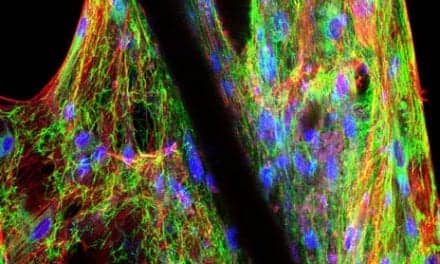Pluripotency expressing cells can be grown from the cartilage tissue of knee joints affected by ortheoarthritis and can open the doors to a spectrum of novel solutions to address cartilage damage, according to Dr Shojiro Katoh, President, Edogawa Hospital.
People with severe osteoarthritis undergo total knee arthroplasty (TKA), in which damaged cartilage is replaced with an artificial knee prosthesis. While performing a TKA surgery, Katoh took portions of the damaged tissue, which otherwise is discarded, isolated the chondrocyte cells in a tissue engineering lab, and could culture them as fully reorganized healthy cartilage tissue, expressing biomarkers relevant to pluripotency.
Cartilage of the knee joint acts as a cushion between bones of the thigh and leg and absorbs a person’s body weight. When cartilage is damaged due to sports injury, trauma or wear and tear, it causes joint pain and disability. In the early stage of the disease, autologous chondrocyte implantation (ACI) or matrix assisted chondrocyte Implantation (MACI) are practiced.
Such cell therapies use the patient’s own cartilage cells, harvested from a healthy, non-weight bearing area, grown in lab, and transplanted to replace the damaged tissue, to restore functionality, a media release from GN Corporation Co Ltd explains.
[RELATED: Osteoarthritis Study Reports 290% QOL Increase from Stem Cell Therapy]
The study was published recently in Regenerative Therapy and was presented at the 19th Japanese society for regenerative medicine meeting.
“Our technique may help utilize OA-affected cartilage, discarded as biomedical waste, as a source of tools of cell therapies viz., cells, cell secreted growth factors, and exosomes to repair cartilage defects in regenerative medicine,” Katoh adds, in the release.
[Source(s): GN Corporation Co Ltd, Business Wire]





